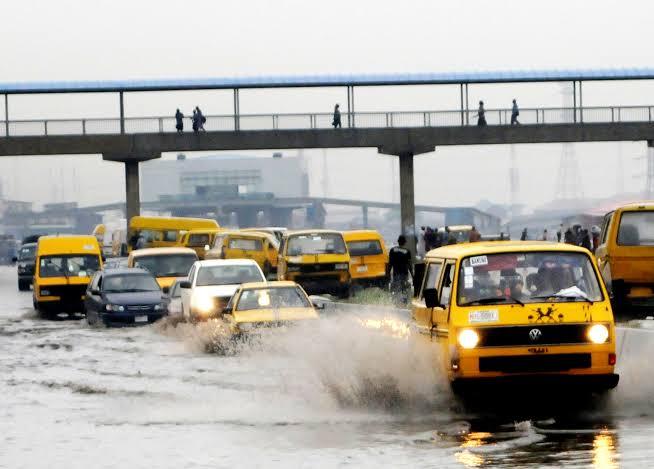Mr Tunji Bello, the Lagos State Commissioner for Environment and Water Resources says the state has completed clearing of 146 secondary drain channels to prevent emergency flood.
SEE ALSO: Lagos Govt vows to find solutions to incessant Tanker Accidents
Bello made the disclosure at a briefing held in the ministry on the fallout of 2020 Rain Predictions in Lagos on Tuesday.
According to him, the Lagos State Government has cleared 146 out of 222 secondary drainage channels in the state, while 46 primary channels are presently receiving attention.
He said that the continuous clearing of drainage was in addition to the efforts of the Emergency Flood Abatement Gangs (EFAG), which was deployed to undertake quick fix of free manholes of drains manually.
Bello said that the drainage channels were spread round the divisions of the state, while some channels had been cleaned and tonnes of solid refuse excavated from the canals and simultaneously carted away.
“I sympathise with residents due to the heavy downpour of June 17 and June 18, which led to damage and destruction of some property through flooding and reported loss of loved ones.
“The Almighty God will give those that lost their loved ones the fortitude to bear the loss and those whose property were damaged by the floods, we also share in your feelings at this period.
“The Lagos State Government has however seen the need to come out to reawaken residents on the potential dangers that lie in ignoring our warnings in terms of measures we have put in place to prevent the incidents of flooding in our environment.’’
According to the Nigerian Meteorological Service (NIMET), the earliest predicted onset of the rainy season was on March 17, and soon after, the rainy season is expected to cease earliest by Nov. 22 in Surulere and other areas.
“Ikeja is expected to have about 1,526 millimeters rainfall, while Badagry will have 1,750mm, Lagos Island with 1,714mm, Ikorodu with 1,690mm and Epe with 1,730mm,” Bello said.
He said that Lagos Island was expected to have rainfall onset of March 19, with an error margin of three days, while “it is cessation date is expected to be Nov. 26.’’
Bello explained that Lagos Island would be having about 252 days of rainfall and about 1, 714mm of rainfall over the year.
He said that NIMET had forecasted that Lagos would experience a rainy season of 240 to 270 days, while the Maximum Annual Rainfall was predicted to be 1,750mm.
Bello further stated that a coastal state such as Lagos was bound to have flash floods due to the high rise of the Lagoon and the ocean rise could also cause constant rainfall for a minimum of eight hours.
He, however, said that the state government was determined to mobilise contractors back to some of the drainage that had been cleaned but littered again by some recalcitrant members of the public.

